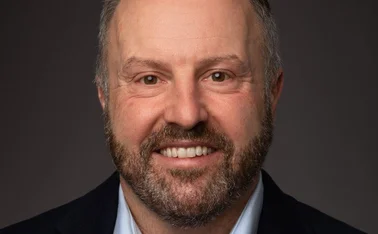
Rehabilitation: Embedding rehabilitation

Rehabilitation is now widely accepted by UK motor insurers, but its record continues to be mixed on implementation. Mark Baylis urges firms to consider the wider context of rehabilitation if further progress is going to be made.
For a voluntary document, the Rehabilitation Code has made quite an impact. Although not the first rehabilitation initiative within the insurance industry, the code is widely recognised to have created a sea change when it was published in 1999.
Its influence has spread far and wide. Government, the judiciary, employers, trades unions and the NHS, among others, sat up and continue to take notice. The insurance industry has gained valuable PR benefits for being ahead of the game in an important area.
Since then the code has been through two revisions, after feedback from those who have used it, and the International Underwriting Association and Association of British Insurers' Rehabilitation Working Party is currently considering a third revamp. Remarkably and encouragingly, this may not be necessary — but we would still like to hear from anyone who feels there should be substantive changes.
Insurers, personal injury lawyers on both the claimant and defendant side of the fence plus private-sector rehabilitation providers have told us the code is working well. This is not a universal view, but criticisms have been few. Those received have mostly centred on specific details or simply called for improved clarity of wording. Further sizeable adjustments are unlikely in the foreseeable future.
Yet the UK still has a long way to go before rehabilitation is routinely considered in the claims process. As a rough rule, there is substantial take-up at the higher levels — those claims with a value exceeding £500 000 — but much lower take-up further down the scale, where insurance companies may not find rehabilitation a cost-effective solution.
Significant legal weight
One remedy often put forward is to 'give the code some teeth', but this is not going to happen. It is already attached to the personal injury pre-action protocol, so it has significant legal weight. Even if the political will existed to introduce coercion it is difficult to see how that would work in practice; you cannot force opposing parties to co-operate if they do not want to.
Many people have given the code credit for the much improved — though still often difficult — relations between insurers and claimant lawyers because it encourages collaboration. In those cases where the two sides do not wish to collaborate, making it compulsory would simply transfer the battleground into the rehabilitation arena.
Formalising standards
One recurrent complaint is that some private-sector rehabilitation providers give a sub-standard service. These are in the minority, but they undermine confidence in the whole concept. That is the main reason the UK Rehabilitation Council produced its own standards last year, designed for both commissioners and users of rehabilitation services to help them choose the most appropriate service providers.
While not quite creating the sea change experienced as a result of the code, these standards have certainly raised the profile of quality issues. Although only a minority of insurers and personal injury lawyers currently use the standards they have been well received. Their acceptance and adoption is also ahead of where the code was in its early days, and the standards are acting as a catalyst for improvement.
Arguably the standards are more useful within complex claims of high value than the much more frequent smaller personal injury claims. Most insurers see low-value claims as a commodity to be processed as efficiently as possible, often using service centres based offshore. That approach is perfectly legitimate, but how do you make it compatible with a relatively complex, tailor-made practice such as rehabilitation?
Most motor insurers have attempted to achieve this; some have been happy with the financial outcomes but many have not. What we are still missing is that valuable piece of research to determine why some insurers have been successful in this respect while others have not. To unlock the answer to that question would represent a huge step forward for rehabilitation. The Bodily Injury Claims Management Association is currently investigating whiplash injuries and it will be interesting to see where its efforts lead.
Despite the experiences of some insurers, rehabilitation can still be provided cost-effectively at lower levels if research that the Rehabilitation Working Party published in 2006 is any guide. As part of the exercise, questionnaires were sent out to a total of 200 claims handlers. All of them had received a substantial degree of instruction in rehabilitation and support in implementing it.
Regrettably this means those claims handlers were by no means typical of all such staff. But they responded overwhelmingly that rehabilitation assisted the claims process, even for smaller injuries, where nearly three quarters of responses were positive. So, a simple lesson perhaps is the better the training and support, the better the results.
Persuasive proactivity
Nonetheless, the main driver for change is likely to come from wider forces. We should never forget rehabilitation is part of a jigsaw. Faced with the challenges posed by referral fees and organisations such as accident management companies, insurers are becoming more proactive in the handling of claims.
When someone recently drove into the side of my car, their insurer phoned me within 24 hours and arranged for repair work and a courtesy car. In so doing, they reduced the chances — entirely theoretical in my case — that I might be persuaded by a third party to gold-plate the claim or 'discover' a debilitating injury as a result of the accident.
How long before insurers take a similar approach to rehabilitation? Claimant lawyers are increasingly interested in offering this service to their clients. They are encouraged to do so by the Association of Personal Injury Lawyers, who regard it as a top educational issue. Apil's motives are genuinely to benefit injured people but insurers will want to own the rehabilitation process as much as any other aspect.
The logic of embedding rehabilitation into insurers' proactive claims handling can only become more persuasive. As the cost of personal injury continues to rise, especially when inadequately managed, the incentives to do so can only increase.
Mark Baylis is chair of the IUA-ABI Rehabilitation Working Party
Only users who have a paid subscription or are part of a corporate subscription are able to print or copy content.
To access these options, along with all other subscription benefits, please contact info@postonline.co.uk or view our subscription options here: http://subscriptions.postonline.co.uk/subscribe
You are currently unable to print this content. Please contact info@postonline.co.uk to find out more.
You are currently unable to copy this content. Please contact info@postonline.co.uk to find out more.
Copyright Infopro Digital Limited. All rights reserved.
You may share this content using our article tools. Printing this content is for the sole use of the Authorised User (named subscriber), as outlined in our terms and conditions - https://www.infopro-insight.com/terms-conditions/insight-subscriptions/
If you would like to purchase additional rights please email info@postonline.co.uk
Copyright Infopro Digital Limited. All rights reserved.
You may share this content using our article tools. Copying this content is for the sole use of the Authorised User (named subscriber), as outlined in our terms and conditions - https://www.infopro-insight.com/terms-conditions/insight-subscriptions/
If you would like to purchase additional rights please email info@postonline.co.uk
Most read
- Esure offers customers six-months free cover for latest tech glitch
- Big Interview: Jason Storah, Aviva
- Copart confirms delays to Luton Airport salvage operation







